Making Life Better
America and Tennessee changed greatly during the time period after the Civil War and into the 20th century.
Some of these changes caused by people moving to cities and industrialization were not all positive.
Poor people in cities were sometimes crowded into slums with high rates of disease and death, especially in babies.
Corporations joined into trusts so that only a few companies and individuals controlled the country’s wealth. Children were forced to work in terrible conditions in factories.
In 1906 Upton Sinclair wrote a novel, The Jungle, in which he hoped to expose the bad working conditions of laborers. Instead readers were horrified about how he described the meat-processing industry in which rats, dirt, and other “worse objects” were tossed in with the meat when making sausage.
President Theodore Roosevelt sent a team to investigate Sinclair’s charges, and it came back with a report that agreed with the charges. This led to passage of the Pure Food and Drug Act and the Meat Inspection Act in 1906.
Progressives
People who worked to make life better for people, especially the poor and working class, were sometimes call Progressives. They tried to improve social conditions. They wanted better roads and schools. And they wanted their leaders to have more political accountability.
Tennessee progressives were also very concerned about issues of morality such as prohibition of liquor and women’s suffrage . They felt that by banning liquor sales, men and women who drank too much and damaged themselves and their families would no longer be able to do so.
Progressive leaders tended to be educated, affluent, and professional men and women. They did not concern themselves with party loyalties. But rather they voted for leaders who would support practical reforms like cheaper utilities, better services, statewide schools, safe neighborhoods, and clean streets.
Picture Credits:
- Photograph showing a “model T on the “W” road.” This photo was taken in 1910 on Walden’s Ridge in Signal Mountain, Tennessee. The model T was manufactured by Ford and was a popular automobile in the early 1900s. The “W” road was built in 1890 and replaced an older road that was used for traffic up and down the ridge. Chattanooga Hamilton County Bicentennial Library.
- Photograph showing member of the La Guardo Home Demonstration Club. This photo was taken in 1920 in Horn Springs, Tennessee. Tennessee State Library and Archives.
- Photograph of a class from the Sugar Grove School. This picture was taken in Gorman, Humphreys County, Tennessee in the early 1900s. Many of the school children are not wearing shoes. The school teacher is pictured on the far right. She is standing beside two young women. Tennessee State Library and Archives.
- Photograph showing the Domestic Arts Class at Cumberland University. This photo was taken in Lebanon, Tennessee in 1915. All of the students in the class are women. Tennessee State Library and Archives.
- Photograph entitled, “Liquor Raid.” This photo was taken on April 25, 1923. It features several men standing beside numerous barrels and jugs of confiscated liquor. A policeman can be seen on the far left. Library of Congress.
- Photograph showing an African American postman, Shadrick Carter. Carter is pictured on horseback carrying his mail satchel. This photo was taken in 1883 then Carter went to work for the Knoxville Post Office. Beck Cultural Exchange Center.
- Photograph showing a Women’s Christian Temperance Union float. This photo was taken in 1920 in Bristol, Tennessee. It features a truck decorated as a float with white ruffles and a globe in its flatbed. Six women and a small child are all dressed in white and are shown posing beside the float. Bristol Historical Association.
- Photograph of an automobile. This photo was taken in Athens, Tennessee in 1901. It shows a couple riding in the city’s first automobile. Tennessee State Museum Collection.
- Photograph showing a moonshine still. It shows several men in the woods manufacturing moonshine. Tennessee State Museum Collection.
- Photograph of the Memphis flood. This photo was taken in 1912 in Memphis. It shows a woman and three small children with their belongings sitting in front of a shack on a small patch of land surrounded by water. A house is shown almost completely submerged in the background. Memphis and Shelby County Public Library and Information Center.
Confronting the Modern Era >> Life in Tennessee >> Making Life Better >>
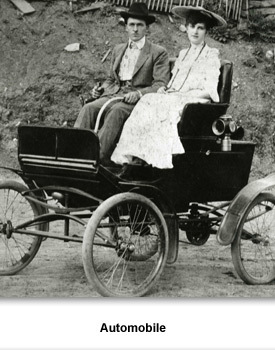
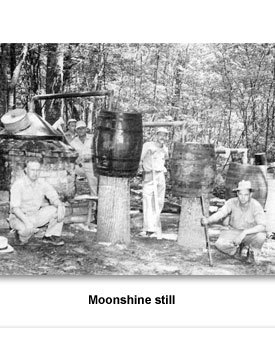
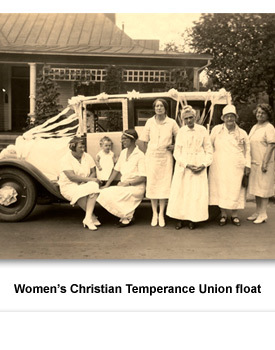
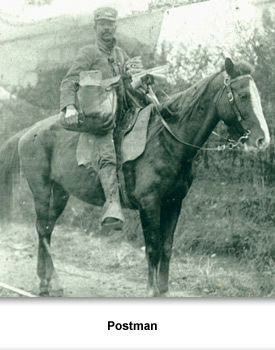
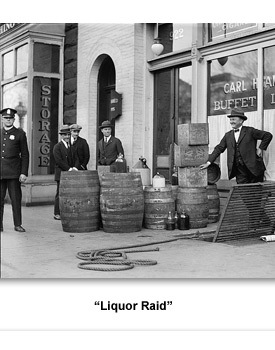
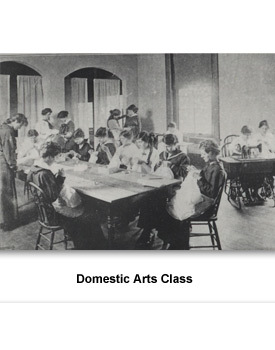
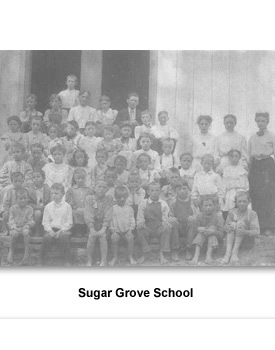
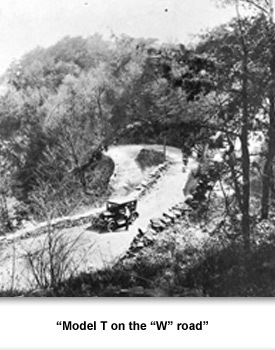
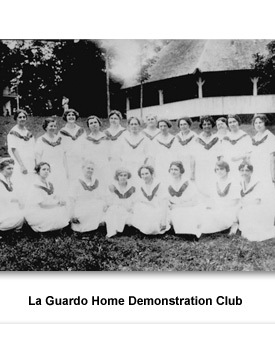
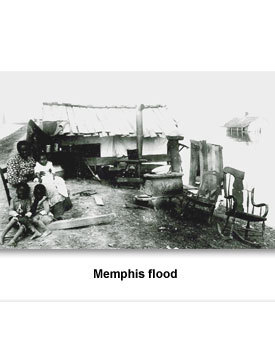
 Sponsored by: National Endowment for the Humanities
Sponsored by: National Endowment for the Humanities